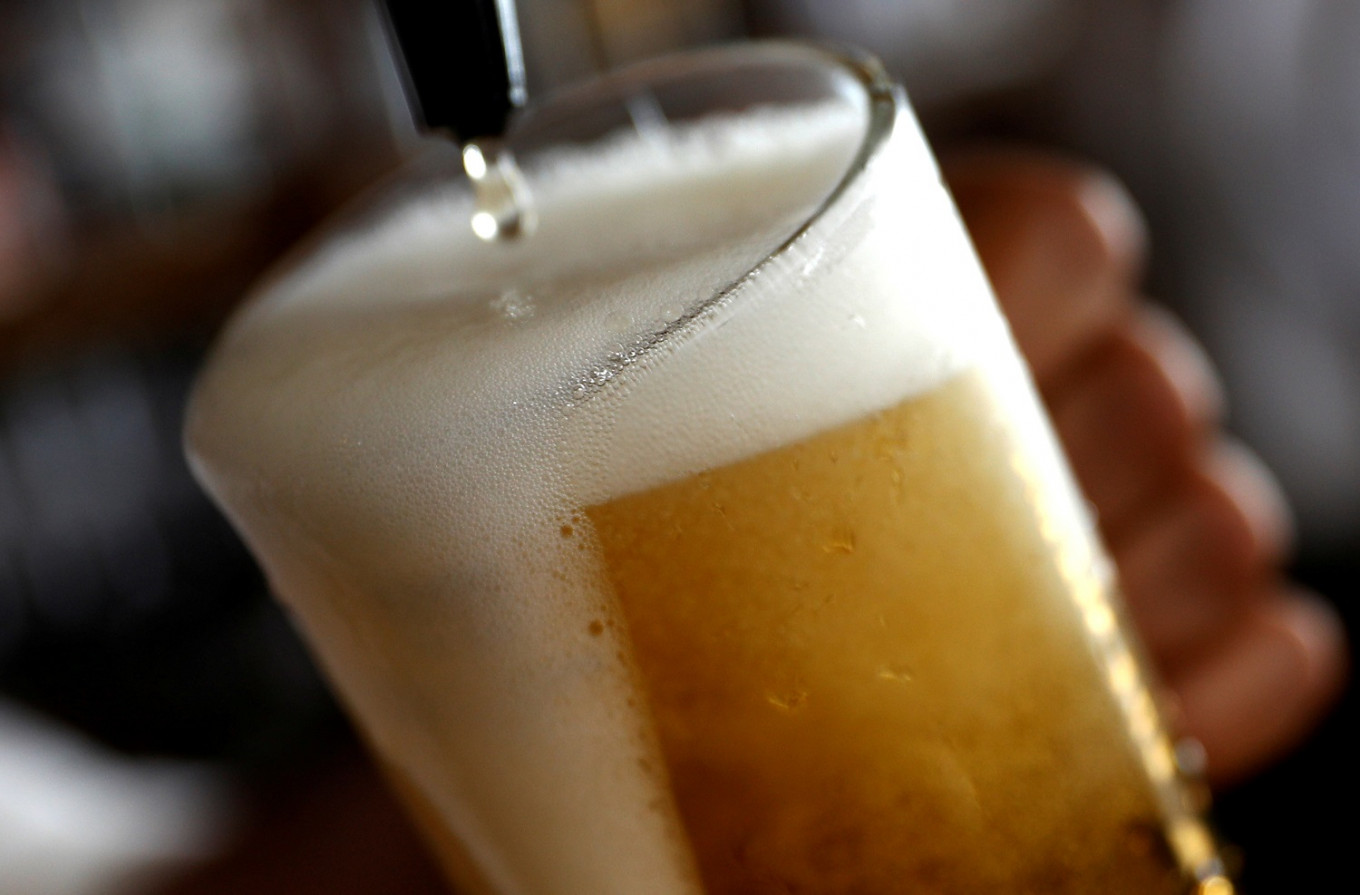Popular Reads
Top Results
Can't find what you're looking for?
View all search resultsPopular Reads
Top Results
Can't find what you're looking for?
View all search resultsLast call?: Indonesia resumes deliberation of alcohol ban
"This bill prohibits the production, distribution, storage, and consumption of alcohol. It will kill a lot of businesses and lead to thousands of people without jobs,” a Golkar lawmaker said.
Change text size
Gift Premium Articles
to Anyone
 The House of Representatives resumed its deliberation of a controversial alcohol prohibition bill on Tuesday, after the bill had spent years on hold, as some lawmakers asserted that it was important for the country to have stronger laws governing alcohol production and consumption. (REUTERS/Peter Nicholls)
The House of Representatives resumed its deliberation of a controversial alcohol prohibition bill on Tuesday, after the bill had spent years on hold, as some lawmakers asserted that it was important for the country to have stronger laws governing alcohol production and consumption. (REUTERS/Peter Nicholls)
T
he House of Representatives resumed its deliberation of a controversial alcohol prohibition bill on Tuesday, after the bill had spent years on hold, as some lawmakers asserted that it was important for the country to have stronger laws governing alcohol production and consumption.
Islam-based parties in the House spearheaded the effort. Eighteen lawmakers from the Islam-based United Development Party (PPP), two lawmakers from the Prosperous Justice Party (PKS) and one from the nationalist Gerindra party filed a request with the House’s Legislation Body (Baleg) in February to resume the bill’s deliberation. Baleg approved the request on Sept. 17.
The bill was included in the 2020 National Legislation Program, after having stalled shortly after its introduction in 2015.
One of the bill’s proponents, PPP lawmaker Illiza Sa'aduddin Djamal, said it aimed to protect the public from the negative consequences of alcohol consumption.
"This bill aims to keep the public from harm, create order, protect the public from alcoholics and create awareness about the dangers of alcohol consumption," she said on Wednesday, as reported by kompas.com.
Illiza said no specific law governed the consumption of alcoholic beverages in the country.
"It's only stipulated in the Criminal Code, and the regulation is too broad," she said.
Read also: Heated debate continues on alcohol prohibition bill
In contrast, Baleg member Christina Aryani of the Golkar party said the bill would kill the country's alcoholic beverage industry if it was passed into law.
"This bill prohibits the production, distribution, storage, and consumption of alcohol. It will kill a lot of businesses and lead to thousands of people without jobs. It's not in line with the government's goal to create as many jobs as possible," Christina said on Thursday.
She also claimed that the bill’s supporters had used outdated research to support their arguments.
"They used research from 2007 and 2014 to support the bill. We need more in-depth research on the topic, including cost-benefit analysis on the urgency of the proposed bill," she said.
She said alcohol had been well regulated in the Criminal Code, as well as by presidential decrees, ministerial decrees and other bylaws.
The alcohol prohibition bill was proposed in 2015 and has since sparked widespread debate, including protests from alcoholic beverage producers, tourism players and local community leaders.
If passed, the bill as it currently stands would impose a nearly full nationwide ban on the production, distribution and consumption of drinks with an alcohol content from 1 to 55 percent.
But several exceptions are listed in article 8 of the bill, including for traditional rituals, religious ceremonies, tourism, pharmaceutical products and in establishments with special permits.
Business players in violation of the regulations would face a maximum of 10 years in prison and Rp 1 billion (US$ 70,500) in fines. People found consuming alcoholic beverages would face up to 3 years in prison and Rp 50 million in fines.
The bill also requires the government to use 20 percent of the tax revenue obtained from alcoholic beverages to educate people about the dangers of alcohol consumption and to rehabilitate alcoholics. (nal)









